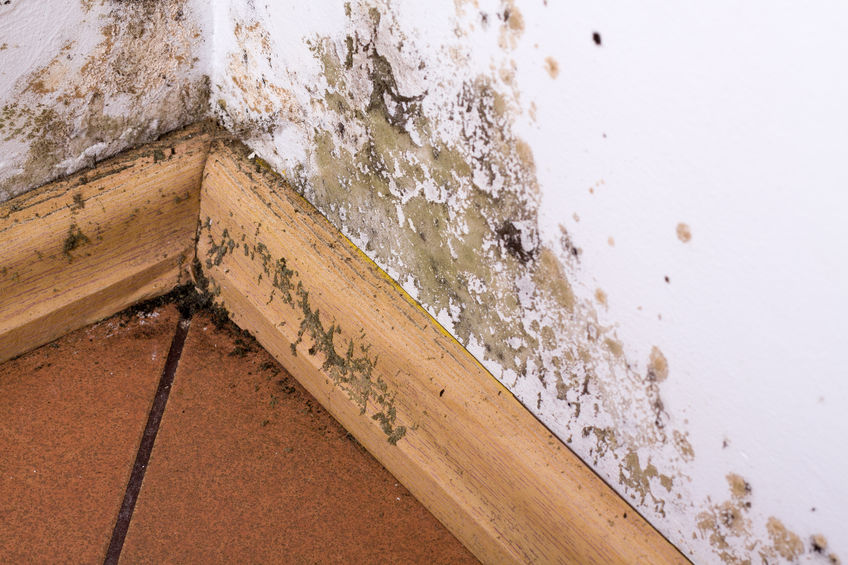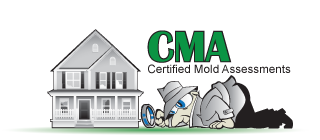 Often invisible and highly toxigenic, black mold can grow inside homes, workplaces, and schools for years without detection. The growth of this toxic substance is usually fueled by damp conditions, and people exposed to it are at risk of health complications like allergies, asthma, and depression. According to research, over 30 million chronic sinus infections mistaken for common cold are usually caused by mold exposure. This article gives an insight as to why black mold is so common and why it is extremely dangerous.
Often invisible and highly toxigenic, black mold can grow inside homes, workplaces, and schools for years without detection. The growth of this toxic substance is usually fueled by damp conditions, and people exposed to it are at risk of health complications like allergies, asthma, and depression. According to research, over 30 million chronic sinus infections mistaken for common cold are usually caused by mold exposure. This article gives an insight as to why black mold is so common and why it is extremely dangerous.
What is Black Mold?
Before we see its dangers, it is good understand what black mold really is. Black mold is a type of mold species with a black or dark green appearance. A common species is the Stachybotrys Chartarum. Black mold grows in warm and moist environments. Some areas to find such molds include showers, kitchens, toilets, and baths. They can also be found on dirt, paper, and wood.
Signs of Black Mold You Ought to Know
Look out for the following signs, as they might help you know whether your property has black mold:
Dark Rings and Spots
An early sign for the presence of mold is the appearance of spots or dark rings on the walls, floors, or ceilings. Even if the spots are not caused by mold, they could be indicators of water damage, which is a major contributing factor of mold growth. If you happen to identify dark rings in your house, it is a good idea to mop and clean it up as fast as possible. Be sure to have a look at other areas, as the problem could be widespread.
Mold Growths
Although black mold is often invisible, you might be able to see it when the growth is in high amounts. If you happen to notice a dark, furry growth around moist areas of your home, it could indicate the presence of black mold. It is good to note that black mold has color variations, and could appear in orange, brown, white, and even green specks. Nevertheless, no matter the color you see, it is good to note the cause, and have it handled to avoid health complications to you and your loved ones.
Unpleasant Smell
Black mold has an earthy, pungent, and musty smell. If you happen to notice such a weird smell in a room, consider checking it thoroughly for the presence of mold. If you are not able to see anything at first glance, check underneath the tiles, plastering, wallpaper, and other areas where the mold might be hiding. If you are still not able to identify the mold then have a mold inspector help you out.
Irritation
Some symptoms of black mold exposure include sneezing, headaches, skin irritation, and itchy eyes. If you happen to experience these symptoms, it could mean that your house has black mold. Therefore, you should have your home checked, and if there is mold, have it removed quickly.
Why is Black Mold Dangerous?
Black mold is toxigenic, meaning it releases toxins, which can be harmful to humans exposed for a long time. High concentrations of these toxins, often called mycotoxins, cause mold poisoning even in healthy people.
A common symptom of exposure to black mold is associated with respiratory response. Sneezing, chronic coughing, rashes, irritation to the eyes, persistent headaches, and chronic fatigue are all symptoms of black mold poisoning. Prolonged exposure to black mold can cause severe symptoms like vomiting, nausea, and bleeding in the nose and lungs.
Additionally, black mold releases toxins that might attach to your brain’s neurons, leading up to an incapacitated mental ability. This can cause neurological issues like tremors and mood swings. Moreover, breathing in black mold spores weakens your immune system, meaning that you catch other diseases. If you are exposed to this substance for a very long time, it can shut down your internal organs, damage your brain, reduce your immune system, and eventually cause death.
Mold in homes can cause a dangerous problem especially it is toxic black mold. The effects of mold exposure cover a wide array of health issues, and understanding potential indicators, helps keep you and your loved ones safe. If you are in search of a fast and professional way to get rid of black mold from your property, then consider reaching out to an expert to help you out. This is usually the best way to solve a mold problem, as professionals also provide you with advice on how to prevent the issue in the future.
